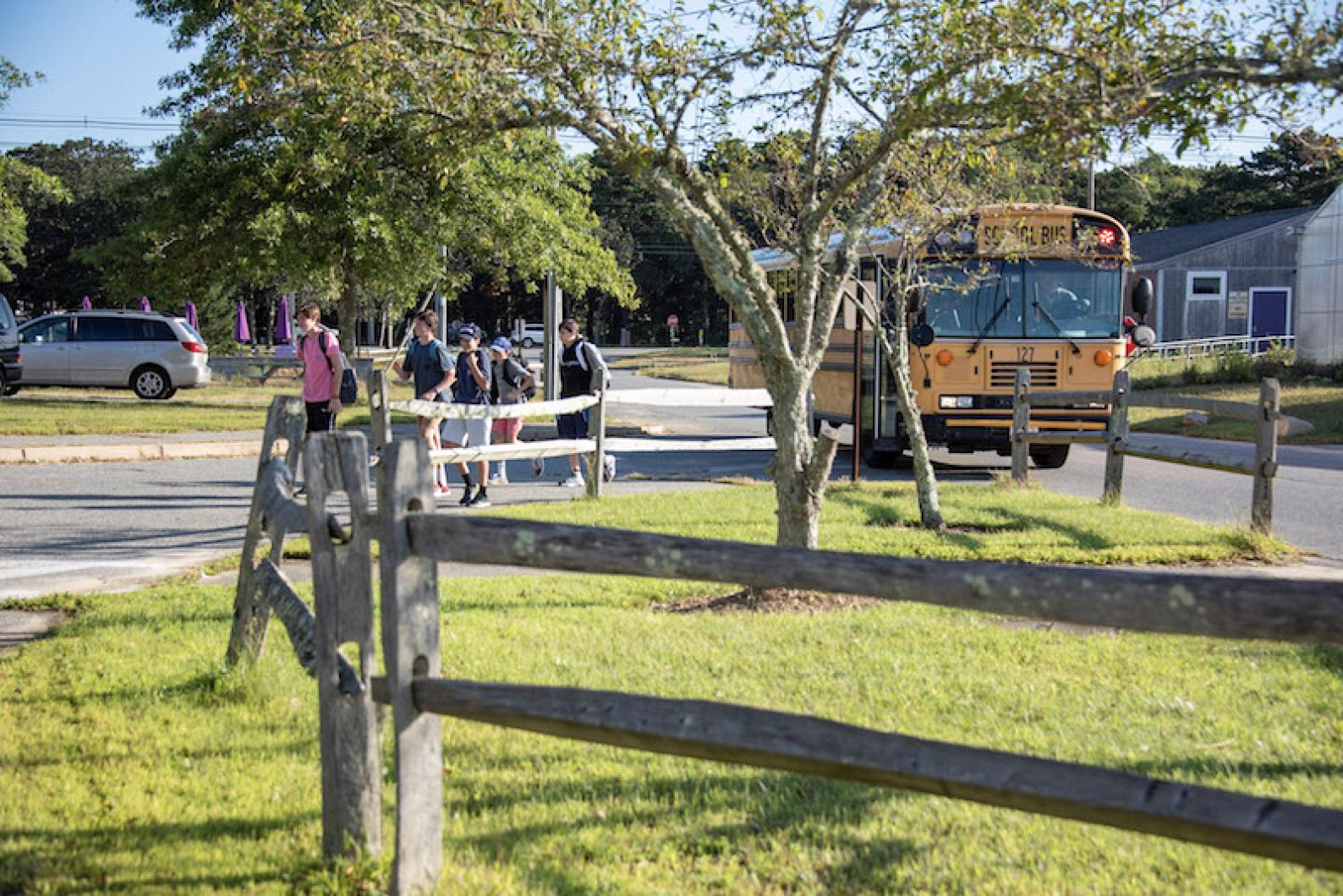With growing discord over the regional high school funding formula, district school committee members agreed Monday that mediation may be the only option in a process that has become increasingly complicated and controversial.
After peppering educational consultants with questions for over an hour at a school committee meeting Monday night, board members voted to send school superintendent Matthew D’Andrea to the six Island towns to ask selectmen to come back to the negotiating table.
“We need to get everybody in the same room and talking,” committee member Jeffrey (Skipper) Manter 3rd said.
Oak Bluffs town and school leaders want to change the school funding formula from a per-pupil basis to an equalized evaluation mechanism that takes into account property values within individual towns. A new formula would lower the required contribution for Oak Bluffs, but the idea has been vigorously opposed by elected officials in both Chilmark and Edgartown, where high school assessments would go up sharply under the proposed change.
On Monday Mr. D’Andrea organized a presentation from MARS, an educational consulting group started by five former school superintendents. Consultants outlined the process for amending the agreement if they are hired, which would involve making the agreement legal, compliant with the state Department of Education and fit to the specific needs of the Island.
Consultants said hammering out the assessment issue would be the number one priority, although they also noted there are other noncompliant aspects of the regional agreement that date to 1989.
“We understand that there is an issue here with your assessment and we believe that is the piece of this that needs to be addressed first,” consultant Malcolm Reed said. “We do believe that some professional mediation would be helpful to bring all the parties together at the beginning to look at the assessment process.”
When the consultants finished the presentation, hands shot in the air from members of Island finance committees present at the meeting. Vicky Divoll, chairman of the Chilmark finance committee, said she came to the meeting to relay a message from her town’s selectmen: that they would not participate in the process to change the formula.
“Are you aware of the thorniness [of the situation]?” Ms. Divoll asked the consultants. “Everyone in this room should know that Chilmark selectmen have voted unanimously that they are not going to recommend or act on changing the formula at all, and that they are not open to mediating that issue. We are not going to be part of the conversation.”
Ms. Divoll then left the meeting.
Members of the Oak Bluffs finance committee asked the consultants whether their process for amending the agreement would take into account a town’s “ability to pay” and whether their method would use the equalized valuation formula.
Mr. Reed said he had worked on a regional agreement in Berkshire Hills, a western Massachusetts community with similarities to the Vineyard, in which the operational budget ultimately remained enrollment based, but that capital projects were funded using the equalized valuation formula.
In the end school committee members agreed that little could be done unless the towns agree to work with a mediator. They agreed to take up the question at a meeting of the all-Island school committee in two weeks.
“I’m going to reach out to some mediators and see what it will cost,” Mr. D’Andrea said.
Doug Ruskin, member of the West Tisbury finance committee, agreed that was a good idea considering the animosity among towns.
“This is a relationship issue,” Mr. Ruskin said. “We need a marriage counselor.”
“Or a divorce lawyer,” another finance committee member said.







Comments (10)
Comments
Comment policy »